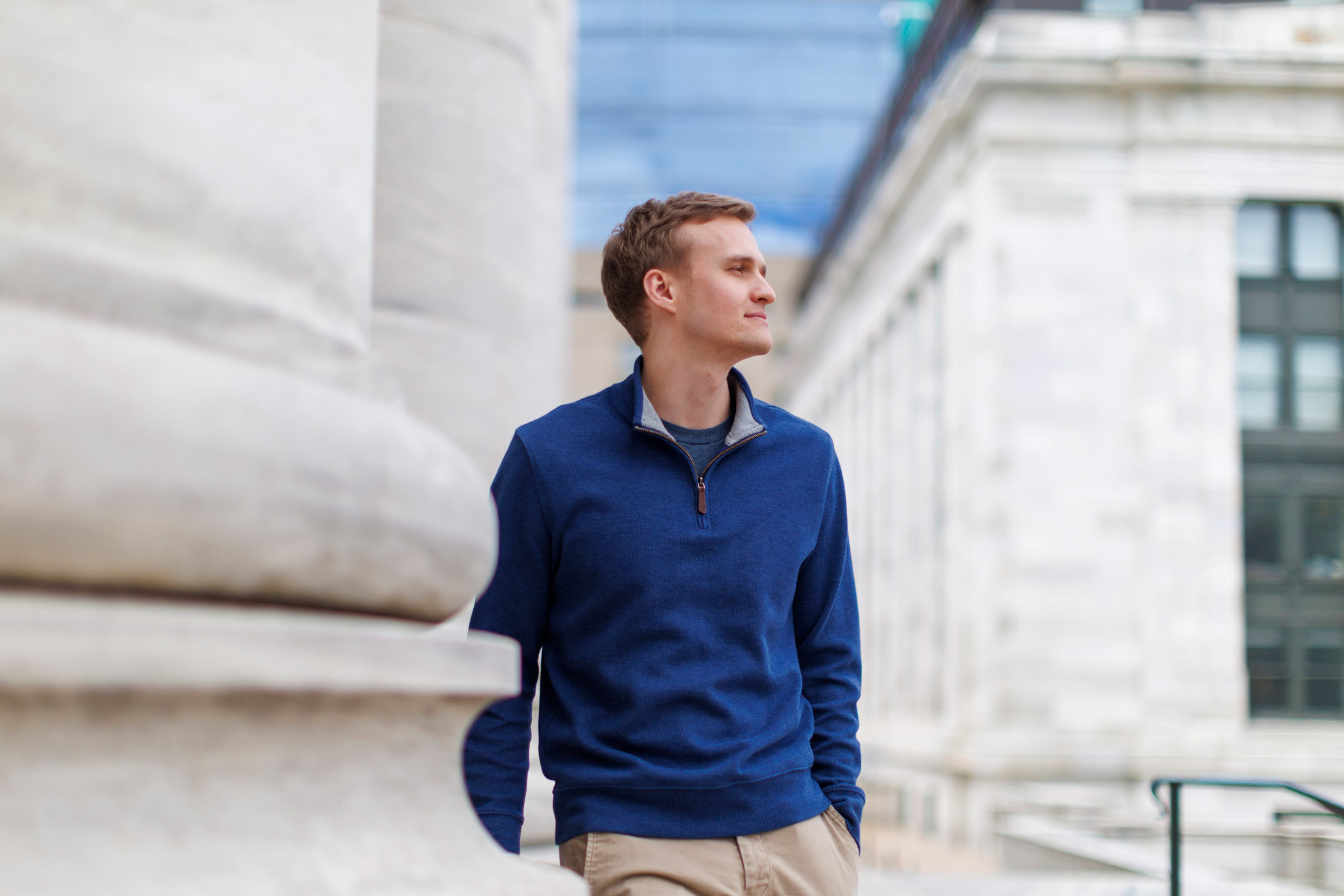A collection of features and profiles covering Harvard University’s 374th Commencement.
An encounter with grief during summer camp set Jett Crowdis on the path to a medical career.
While a Harvard undergraduate, Crowdis — who will graduate from Harvard Medical School this spring — served as a counselor at a camp for children whose parents have cancer. There, he met a 9-year-old boy whose father had died of pancreatic cancer just weeks before.
It was “a sad opportunity to be with someone going through such a challenging time in their life,” Crowdis said. “In later years, I got a chance to talk with him a bit more about his experience and he opened up about it.”
Before that experience, Crowdis knew he liked science, but wasn’t sure the best way to make a career of it. His experience at Camp Kesem, run by a national organization with chapters at several colleges, put a human face on the medical needs he knew were out there.
“My favorite aspect of research is when I get to ask questions that no one else has asked, with data that no one else has.”
“That was the first time that I got to be with someone through a very challenging experience in their life and just listen to what they were experiencing,” Crowdis said. “That was very meaningful to me. I realized that was something that I wanted in a future career, and I think medicine naturally merged that with my interest in science.”
Crowdis, who grew up in Florida, entered Harvard College thinking he would study molecular biology, but during his sophomore summer he worked in the lab of Louise Foote Pfeiffer Professor of Cell Biology Joan Brugge, who encouraged him to learn coding in order to better analyze his research results. Crowdis spent a summer teaching himself the Python coding language and began taking computational biology courses in the fall.
“I just absolutely loved it,” Crowdis said.
Crowdis graduated from the College in 2019 but made the decision to apply to medical school late. He took two gap years in the lab of Associate Professor of Medicine Eliezer Van Allen, also a Camp Kesem alum. Van Allen’s lab at the Dana-Farber Cancer Institute seeks to use computational biology to analyze genomic data from cancer patients, probe cancer’s molecular origins, investigate resistance to cancer therapies, and use genomics to guide clinical decision-making.
Crowdis used his computational skills to advance projects in the Van Allen lab, analyzing data from a prostate cancer genomic study. He was the first author of a Cell Genomics paper that highlighted the benefits of a broad-based experimental framework that engaged study participants as partners who freely share biological samples, clinical information, and details of their cancer experience. The work showed that the model, called the Metastatic Prostate Cancer Project, could break down barriers to treatment and care.
“My favorite aspect of research is when I get to ask questions that no one else has asked, with data that no one else has,” Crowdis said. “That’s the core aspect of research that I love the most, really, the exploration.”
After Crowdis entered HMS in the fall of 2021, he kept in touch with Van Allen, continuing work on some projects. When he expressed an interest in learning immunology, Van Allen connected Crowdis with Arlene Sharpe, Harvard’s Kolokotrones University Professor. In the Sharpe lab, Crowdis investigated how a technique called checkpoint blockade that harnessed the immune system to fight cancer can go wrong, causing potentially dangerous adverse reactions.
“He’s very thoughtful, very interested and engaged, he’s a critical thinker,” Van Allen said. “That’s a pretty unique combination to have. He really wants to be as critical and as keen as he possibly can.”
Though he has amassed considerable research experience, Crowdis is still exploring how large a role that research will play in his career. He matched with Yale New Haven Hospital and will head there after Commencement to begin a residency in internal medicine. The move will also give him a chance to rejoin his wife, Sruthi Muluk, a Harvard College classmate now in an obstetrics and gynecology residency at the University of Connecticut.
“It’s fascinating,” Crowdis said of internal medicine, “and also gives you time to sit and be with patients in the same way that I enjoyed the process at Kesem.”
Source link

